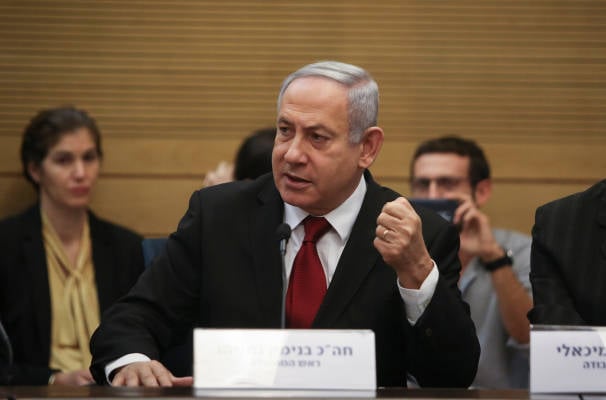‘They aren’t ready to accept us,’ said the prime minister at a special Knesset meeting on Monday.
By United with Israel Staff
Prime Minister Benjamin Netanyahu spoke bluntly on Monday about why he thinks the Palestinians have refused to make peace with Israel.
“Why isn’t there peace with the Palestinians? I look at Abu Mazen [Mahmoud Abbas] and ask: ‘What about you?’ They aren’t ready to accept us,” he said at a special Knesset meeting to mark the 25th anniversary of Israel’s peace treaty with Jordan.
“Half of the [Palestinian] people back Hamas and want to annihilate us, and the other half don’t want to fight with the first half, while [they all] suffer from internal conflicts,” he added.
Netanyahu also spoke about the political correlation between the Israel-Palestinian conflict and the Jewish state’s acceptance in the eyes of the Arab world.
“If we solve the debate with the Palestinians, we can break through to the Arab world,” he said. “If we are able to achieve normalization with the Arab world, then the conflict with the Palestinians will be solved. I think that we need to do both.”
However, Netanyahu admitted that even though Egypt and Jordan formally recognize the Jewish state, they “never really achieved reconciliation, because of the Palestinian issue.”
Israel’s prime minister also spoke briefly about diplomatic relations between Israel and Jordan.
“It is easier to make peace with democracies because their natural tendency is not to fight, whereas dictatorships require establishing deterrence first. If you don’t have deterrence, the peace will not last. Jordan knows that Israel is stronger,” he said.
“On top of that deterrence we built cooperation in security aspects as well as trade, intelligence and water. We help the king [Abdullah] in many covert ways that I don’t think I should expand on,” he added.
Netanyahu’s comments arrived against a backdrop of tensions between the two countries this week.
On Sunday, Abdullah announced that Jordan took “full sovereignty” over two areas adjacent to Jordan that Israeli farmers had worked for decades.
The lands Jordan took, Naharayim and Tzofar, had been leased to Israel for 25 years following the signing of the 1994 Jordan-Israel Peace Treaty.
Israel’s request for a six-month extension was denied by the Jordanian government.
